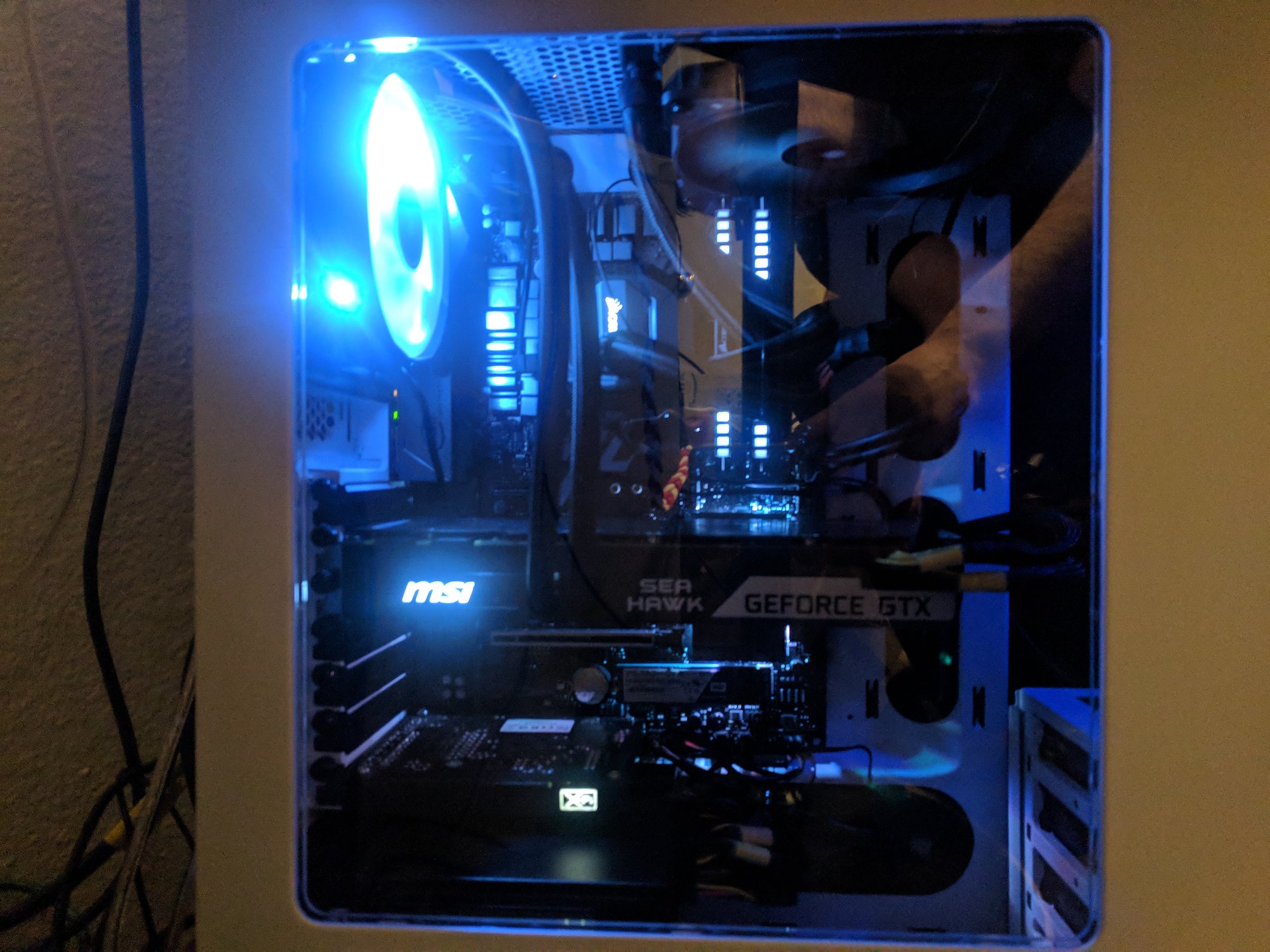Hi,
So i am building a new PC after more than 10 yrs.
1) What is the function of the USB 2 and USB 3 headers on the MB, what things can be attached to them like AIO CPU water cooler etc.?
2) I am looking to build a Ryzen 7 1800x mATX form factor PC. If the motherboard and case have RGB Sync and I get RGB sync RAM (G.Skillz Trident Z RGB) and fans (Corsair LL Series) will I need the NXZT Hue+ so sync all the lighting?
3) Will the NZXT Kraken play well with RGB Sync or do I need to have NZXT Hue+ to control it?
Do u guys have any motherboard recommendations for Ryzen 7 1800x with RGB Sync?
Thanks
So i am building a new PC after more than 10 yrs.
1) What is the function of the USB 2 and USB 3 headers on the MB, what things can be attached to them like AIO CPU water cooler etc.?
2) I am looking to build a Ryzen 7 1800x mATX form factor PC. If the motherboard and case have RGB Sync and I get RGB sync RAM (G.Skillz Trident Z RGB) and fans (Corsair LL Series) will I need the NXZT Hue+ so sync all the lighting?
3) Will the NZXT Kraken play well with RGB Sync or do I need to have NZXT Hue+ to control it?
Do u guys have any motherboard recommendations for Ryzen 7 1800x with RGB Sync?
Thanks
![[H]ard|Forum](/styles/hardforum/xenforo/logo_dark.png)
